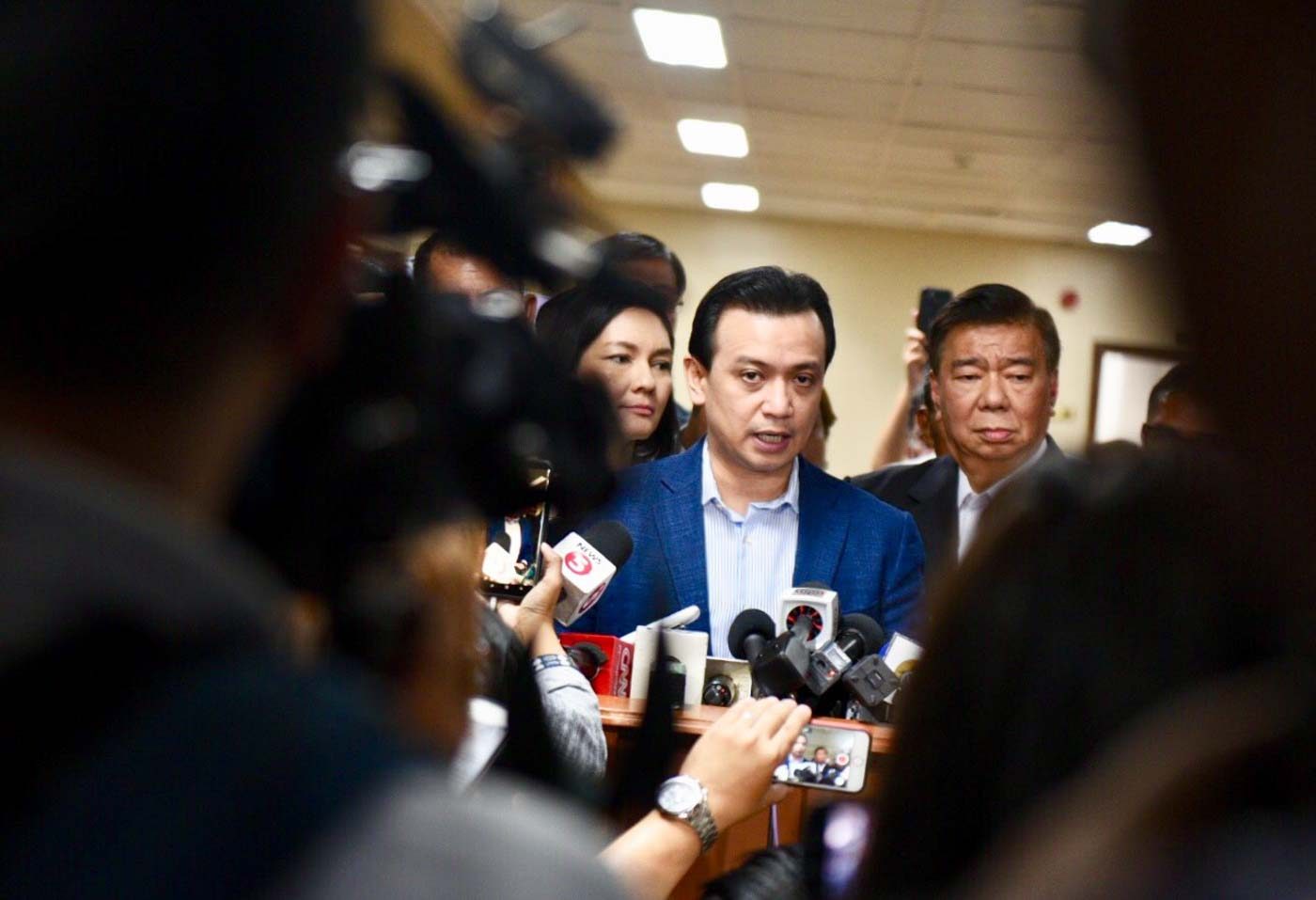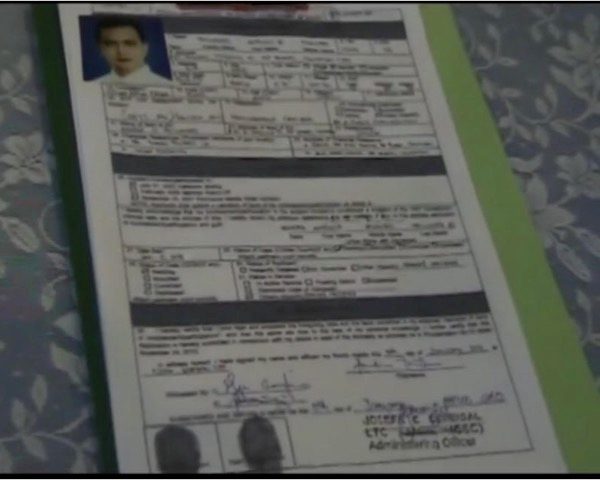SUMMARY
This is AI generated summarization, which may have errors. For context, always refer to the full article.

MANILA, Philippines – The Integrated Bar of the Philippines (IBP) said on Wednesday, September 5, that the Makati Regional Trial Court (RTC) cannot just reopen the coup d’etat case against opposition Senator Antonio Trillanes IV.
“It is highly doubtful that the Makati RTC has retained jurisdiction to entertain the Department of Justice (DOJ) motion. That is no longer a live case,” IBP national president Abdiel Dan Fajardo told Rappler on Wednesday.
On Tuesday, the DOJ applied for an alias warrant against Trillanes before Makati RTC Branch 148, which previously handled the coup charges against Trillanes.
The position of the DOJ under Justice Secretary Menardo Guevarra is that since the amnesty given to Trillanes had been declared void, the Makati RTC could reopen the case.
Acting Prosecutor General Richard Fadullon even added that reopening the case would only be for the purpose of issuing a warrant and promulgating the decision, which was never handed down because of the amnesty.
“In fact if I recall, Judge (Oscar) Pimentel scheduled it for promulgation, he already had a copy of the decision, when there was a manifestation from the defense stating that there was an amnesty that was about to be granted to the accused,” Fadullon said.
Fajardo said this was wrong.
Trillanes’ lawyer, Rey Robles, possesses a Makati court order dated September 21, 2011, dismissing the case against Trillanes “pursuant to the grant of amnesty” by former president Benigno “Noynoy” Aquino III. It was signed by Acting Presiding Judge Ma Rita Bascos Sarabia, who took over the case when Pimentel retired.
“The dismissal of the criminal cases has been final and executory for 8 years. A judgment that has become final can no longer be disturbed except to correct clerical errors. Not even the Supreme Court has the power to modify a judgment that has become final and executory,” Fajardo said.

Due process
Guevarra said that once the case was reopened, it could no longer be tried again. In the event of an adverse decision, Guevarra said Trillanes – one of President Rodrigo Duterte’s fiercest critics – could ask the Chief Executive for clemency.
“In my opinion, assuming that a full blown trial has already been conducted, then there’s no need to repeat. Any judge who will take over and promulgate the judgment need only go through the record, the transcript,” Guevarra said.
The DOJ even said in its motion for a warrant that a hearing on the motion was no longer necessary.
Fajardo said that this violated Trillanes’ right to due process.
“Granting the DOJ’s motion without hearing the side of the accused will be a denial of due process. The Constitution provides that no person shall be deprived of his liberty without due process of law,” Fajardo said.
Duterte voided Trillanes’ amnesty for allegedly failing to meet the requirements of filing an official application and admitting guilt. Trillanes, as well as Aquino, who granted him amnesty, said the senator had duly fulfilled both.

Guevarra said that if Trillanes wanted to prove the factual issues of the validity of his amnesty, he could not do it at the Makati RTC because it was the improper forum.
Fajardo, again, disagreed.
“I do not see any reason why the Senator may not present countervailing facts, law, and jurisprudence, in order to dissuade the judge from issuing the warrant,” said Fajardo.
The situation would force Trillanes to go straight to the Supreme Court, which some legal experts saw as a disadvantage to Trillanes given its past decisions.
There is fear that Trillanes’ case would be a repeat of how detained Senator Leila de Lima lost at the SC, which affirmed her drug charges and arrest, now a ruling that covers even the trial court.
“Ultimately, this amounts to a presidential review of judicial power – contrary to the separation of powers doctrine,” Fajardo said. – Rappler.com
Follow the developments here:
- Disobey Duterte’s ‘illegal orders,’ Alejano asks AFP, PNP
- Trillanes amnesty application could’ve been ‘maliciously concealed’
- No warrant for now: Court gives Trillanes chance to challenge arrest request
- Amnesty of other Magdalo mutineers to be reviewed too – Roque
- Military can arrest Trillanes without warrant – DND
- Robredo: Opposition coalition stands with Trillanes
- Makati court can tackle validity of voiding Trillanes amnesty
- DND has another explanation for Trillanes’ missing amnesty papers
- Senate ‘militarization’? Senators hit AFP, PNP presence in compound
- Trillanes says DND may be charged for ‘losing’ his amnesty application
- DOCUMENTS: DND confirms Trillanes applied for amnesty
- Jail time now also possible for former mutineers turned Duterte appointees
- House called to denounce ‘unlawful’ Trillanes amnesty revocation
- PNP: We sent CIDG to ensure Trillanes’ ‘legal’ arrest
- DOJ to seek warrant vs Trillanes in another court ‘but court martial faster’
- [WRAP] Day 2: Trillanes gets relief from court, DOJ seeks options
Add a comment
How does this make you feel?
There are no comments yet. Add your comment to start the conversation.